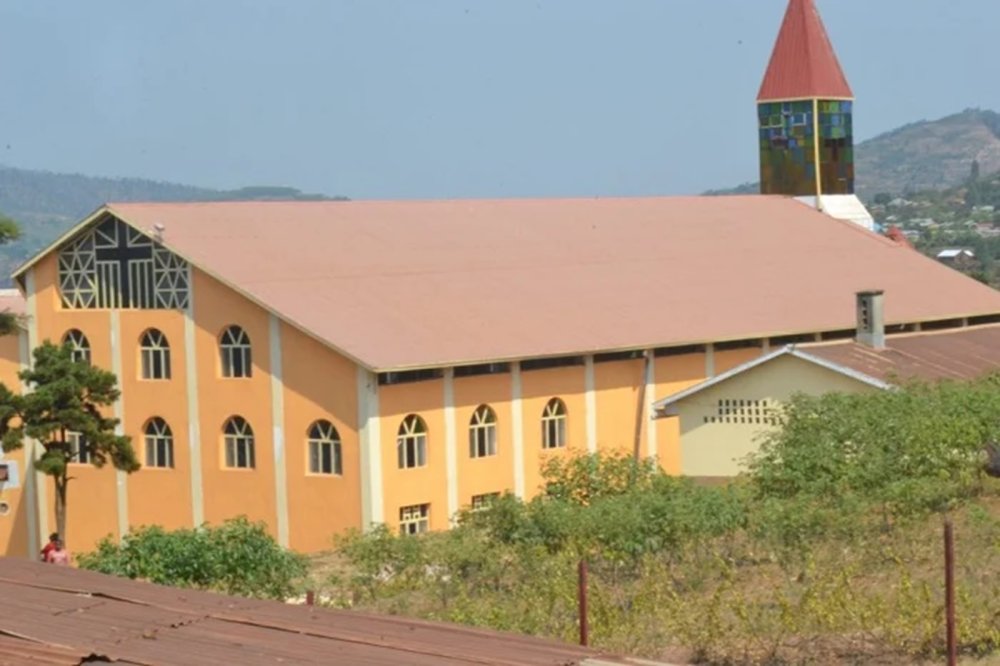The Rwanda Governance Board( RGB) has revealed that 59.3 of over 13,000 churches audited nationwide have been closed due tonon-compliance with established regulations, rephrasing to roughly 7,709 churches. This advertisement underscores the government’s commitment to icing that places of deification operate safely and in agreement with the law.
In cooperation with original authorities, RGB lately conducted expansive examinations to assess whether churches stuck to needed norms. Dr. Usta Kaitesi, CEO of RGB, participated perceptivity into the examination process during an interview with IGIHE. Over nearly two weeks, further than 13,000 churches were estimated for compliance. The results revealed significant issues in numerous places of deification, egging closures.
Kaitesi emphasized that the shutdowns were n’t arbitrary but grounded on the findings of thorough examinations. Some churches faced check due to fairly minor contraventions, which could be addressed snappily, while others needed substantial advancements to meet the necessary norms. Among the more serious enterprises were churches operating without proper authorization, where individualities or groups had opened places of deification and installed signage without carrying the needed permits.
Despite the large number of churches in Rwanda, Dr. Kaitesi clarified that the issue is n’t about reducing their volume but rather icing they meet legal and safety conditions. She stressed that compliance with regulations is a precedence. “ The issue is n’t the number of churches but whether they meet our established norms. Are these churches erected according to legal conditions? Do the leaders retain the necessary qualifications? These are the critical questions we should be addressing, ” she stated.
The examinations, Dr. Kaitesi explained, were aimed at securing the well- being of Rwandans attending these places of deification. She noted that the closures were n’t intended to stifle religious expression but to insure safety and compliance. The action reflects RGB’s broader charge to produce an terrain where faith- grounded associations can thrive while clinging to regulations that cover the public.
Kaitesi also suggested that, rather of a proliferation of small,non-compliant churches, it would be better to have smaller, larger churches that meet norms and give safe spaces for worshipers. “ It’s not about shutting down churches for the sake of it. rather, we want to see places of deification that misbehave with regulations and are led by good individualities. Having a single, large, biddable church can more serve followers than numerousnon-compliant bones
, ” she added.

Addressing claims that the closures were unforeseen and unanticipated, Dr. Kaitesi clarified that examinations are part of RGB’s routine operations and are conducted annually. She noted that churches had been given previous notice about the examinations and the need to misbehave with regulations. “ This is part of our accreditation. RGB has a department devoted to faith- grounded associations and other registered realities, which oversees enrollment and functional monitoring. We’ve constantly carried out examinations, ” she explained.
The current surge of closures is n’t without precedent. In 2018, a analogous examination action led to the arrestment of over 7,000 churches fornon-compliance. At the time, RGB granted affected associations a five- time grace period to address scarcities and meet nonsupervisory norms. Despite this extended timeframe, some churches failed to amend the linked issues, leading to farther action during the rearmost examinations.
“ The grace period ended in September last time, ” Dr. Kaitesi said. “ In December 2023, we requested churches to review their status and submit staff qualifications and functional plans. Some demanded strategic plans, so we asked them to ameliorate and give that information. ” This visionary approach underscores RGB’s commitment to fostering compliance through dialogue and collaboration with religious associations.
In May 2024, RGB reached out to faith- grounded associations again to gather streamlined information about their locales, leadership, and educational qualifications. This trouble aimed to insure translucency and responsibility in the operations of religious institutions. While some associations met the conditions and were allowed to renew operations, others were set up lacking and remained unrestricted.
The process of addressingnon-compliance has also involved ongoing conversations with religious leaders. RGB has worked nearly with them to address linked failings and give guidance on meeting the necessary norms. “ We’ve been covering and engaging with religious leaders to find results to the issues raised during examinations, ” Dr. Kaitesi noted.
While the closures may feel drastic, RGB has reiterated that its focus remains on creating a safe and biddable terrain for deification. icing that places of deification are structurally sound, led by good individualities, and biddable with legal norms is essential for the safety of zealots. The examinations and posterior conduct are part of RGB’s broader strategy to promote responsibility and professionalism among faith- grounded associations.
Looking ahead, RGB has indicated its commitment to supporting churches that are willing to misbehave with the regulations. Organizations that address the linked issues and meet the necessary norms will be allowed to renew. This approach aligns with RGB’s charge to foster an terrain where faith- grounded associations can operate effectively while clinging to established regulations.
The closures have also sparked broader conversations about the part of faith- grounded associations in Rwanda. Some have argued that the proliferation of small churches, numerous of which operate without proper oversight, poses pitfalls to public safety and undermines the credibility of religious institutions. Others see the examinations as an occasion to enhance the quality and professionalism of religious services across the country.
In conclusion, the Rwanda Governance Board’s decision to closenon-compliant churches is part of a larger trouble to insure safety, responsibility, and compliance within the faith- grounded sector. While the closures may originally disrupt some communities, they eventually aim to produce a more secure and regulated terrain for deification. By working nearly with religious leaders and furnishing clear guidelines, RGB seeks to strike a balance between upholding regulations and esteeming the religious freedoms of Rwandans. The road ahead may bear uninterrupted collaboration and dialogue, but the commitment to fostering a safe and biddable faith- grounded sector remains loyal.




